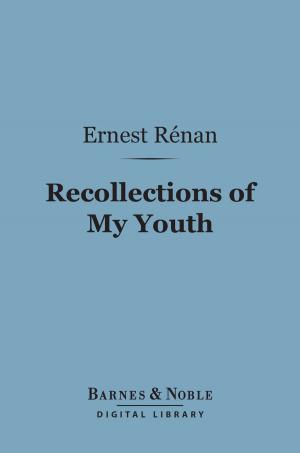Some Experiences of an Irish R.M. (Barnes & Noble Library of Essential Reading)
Fiction & Literature, Classics| Author: | Edith Somerville, Martin Ross | ISBN: | 9781411431393 |
| Publisher: | Barnes & Noble | Publication: | September 1, 2009 |
| Imprint: | Barnes & Noble | Language: | English |
| Author: | Edith Somerville, Martin Ross |
| ISBN: | 9781411431393 |
| Publisher: | Barnes & Noble |
| Publication: | September 1, 2009 |
| Imprint: | Barnes & Noble |
| Language: | English |
Of all the collections of sketches and stories for which nineteenth-century fiction is famous, Some Experiences of an Irish R.M. remains foremost for its combined anthropological and comic value. With an ear for native dialogue that some have claimed to be second only to James Joyce's, Somerville and Ross portrayed the lives of the people of the west of Ireland at a time when the entire country was on the verge of serious historical change.
This collection provided the last few chuckles for the ruling Anglo-Irish Ascendancy class that a new national order would soon supplant. These hugely successful quasi-stories, narrated by an epitome of British authority called the R.M. (Resident Magistrate: a justice of the peace), display an extraordinary capacity for joking in the face of disaster. Some Experiences of an Irish R.M., remarked one bemused reviewer of the time, is a book "no self-respecting person could read in a railway-carriage with any regard to decorum."
This collection provided the last few chuckles for the ruling Anglo-Irish Ascendancy class that a new national order would soon supplant. These hugely successful quasi-stories, narrated by an epitome of British authority called the R.M. (Resident Magistrate: a justice of the peace), display an extraordinary capacity for joking in the face of disaster. Some Experiences of an Irish R.M., remarked one bemused reviewer of the time, is a book "no self-respecting person could read in a railway-carriage with any regard to decorum."
Of all the collections of sketches and stories for which nineteenth-century fiction is famous, Some Experiences of an Irish R.M. remains foremost for its combined anthropological and comic value. With an ear for native dialogue that some have claimed to be second only to James Joyce's, Somerville and Ross portrayed the lives of the people of the west of Ireland at a time when the entire country was on the verge of serious historical change.
This collection provided the last few chuckles for the ruling Anglo-Irish Ascendancy class that a new national order would soon supplant. These hugely successful quasi-stories, narrated by an epitome of British authority called the R.M. (Resident Magistrate: a justice of the peace), display an extraordinary capacity for joking in the face of disaster. Some Experiences of an Irish R.M., remarked one bemused reviewer of the time, is a book "no self-respecting person could read in a railway-carriage with any regard to decorum."
This collection provided the last few chuckles for the ruling Anglo-Irish Ascendancy class that a new national order would soon supplant. These hugely successful quasi-stories, narrated by an epitome of British authority called the R.M. (Resident Magistrate: a justice of the peace), display an extraordinary capacity for joking in the face of disaster. Some Experiences of an Irish R.M., remarked one bemused reviewer of the time, is a book "no self-respecting person could read in a railway-carriage with any regard to decorum."















